Science Illustrated delivers natural science, break through discoveries and an understanding of the world for the entire family. Packed with stunning photography and in-depth editorial it’s a visually spectacular gateway to the world looking into the beginning of life to distant objects in the universe.
SUBSCRIBE & START SAVING NOW!
Science Illustrated Australia
Radio silence: a ‘quiet’ zone lets ASKAP scan the skies
Ray deflection: huge shoal fooled shark spotter
Scientists suspect a mysterious mixed state in Earth’s core • Until we can drill all the way down, scientists cannot be sure about the nature of Earth’s core. But a new study suggests it might exist in a similar super-ionic state to the mysterious ice that is thought to be hiding in the cores of outer planets.
Old reactor delivers new fusion energy record • A reactor in its last days has used a special fuel to double the record for fusion energy, providing further hope that the next generation of similar reactors will be able to find the key that allows large-scale generation of low-cost energy.
Most fish can speak • According to a new study, some two-thirds of the world’s fish species communicate using sound. Scientists are also gaining insight into what they might be talking about.
Night flights of bees in Australia • Some Australian bee species have evolved to allow low-light activity.
Your eyes can reveal your risk of cardiac arrest • The world’s biggest killer is facing a challenge from an unexpected direction. A group of scientists have developed a tool to predict heart attacks based on opticians’ pictures of the back of the eye.
A vaccine against dog allergies is in the pipeline • Many people have dog allergies, ranging from watering eyes to a stuffy nose or skin rashes. The foundation for an anti-allergy vaccine has been laid.
Vitamin D combats autoimmune diseases • Millions of people throughout the world suffer from autoimmune diseases, and the number is rising. Scientists may have found a new way to help.
Can scientists deliver reliable tsunami alerts? • Predicting a tsunami would require us to be able to reliably predict earthquakes and eruptions. But once an event occurs, warning systems may be able to outpace the tsumami’s arrival.
TOP 5 · Which vertebrate can live the longest?
What makes insects buzz? • Does the sound of buzzing insects come from their wings flapping rapidly? Why do different insects make different sounds?
Can the Moon’s gravity influence my sleep?
How much gold is included in a mobile phone? • How many different metals does a smartphone include? And can they be cost-effectively recycled?
How many kinds of joints do we have? • The joints of hips and knees are clearly different, but do we have other types of joints in our bodies?
Why does mown grass smell so good?
…your hair can turn white overnight? • French Queen Marie Antoinette’s hair allegedly turned white the night before she faced the guillotine in 1793. Can that really happen?
Hair roots run out of pigment • With age, production of pigment in the hair roots is reduced, so the hair becomes ever lighter in colour.
How is antivenom made? • The world is home to around 6000 species of venomous snakes that cause some 80,000-140,000 deaths annually. Antivenom is the only specific treatment, but how is it made?
WHAT IS THIS? • Art work generated by artificial intelligence
What is the world record for the highest electrical current? • How many amps have humans managed to generate in an electric current? Are there natural currents that go higher?
Why are dogs so easy to train? • Dogs generally seem to be more obedient than cats. Is that a sign of intelligence, or just their...
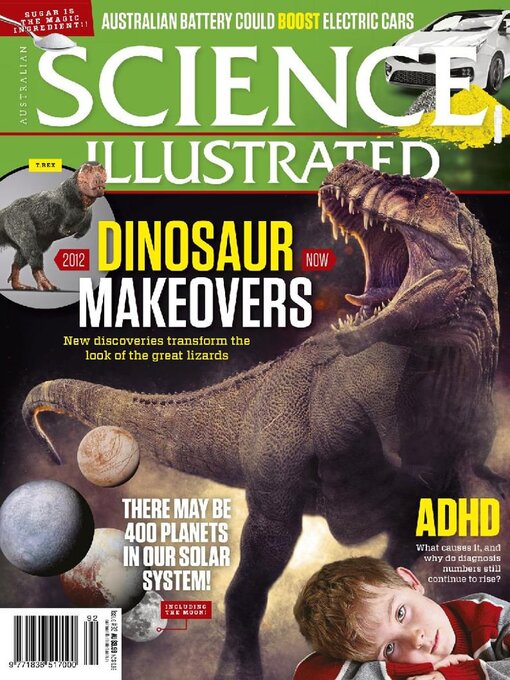
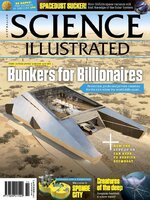 Issue 111
Issue 111
 Issue 110
Issue 110
 Issue 109
Issue 109
 Issue 108
Issue 108
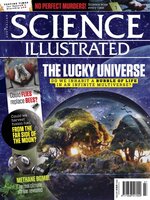 Issue 107
Issue 107
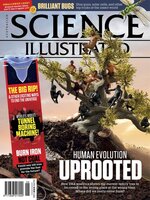 Issue 106
Issue 106
 Issue 105
Issue 105
 Issue 104
Issue 104
 Issue 103
Issue 103
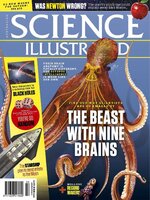 Issue 102
Issue 102
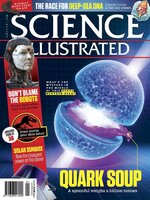 Issue 101
Issue 101
 Issue 100
Issue 100
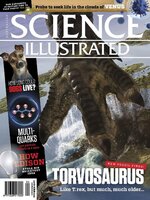 Issue 99
Issue 99
 Issue 98
Issue 98
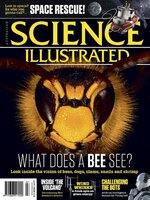 Issue 97
Issue 97
 Issue 96
Issue 96
 Issue 95
Issue 95
 Issue 94
Issue 94
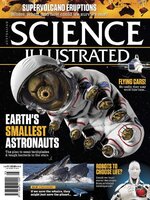 Issue 93
Issue 93
 Issue 92
Issue 92
 Issue 91
Issue 91
 Issue 90
Issue 90
 Issue 89
Issue 89
 Issue 88
Issue 88
